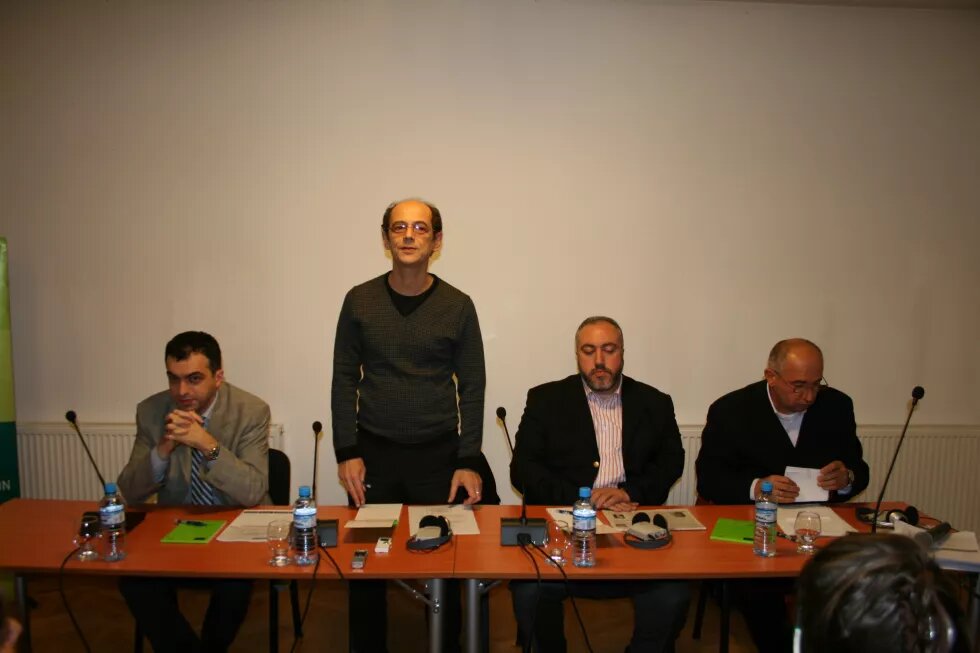
A packed house greeted the first major public discussion in Georgia about the Tagliavini Report since it was issued. The standing-room-only crowd on November 11, 2009, numbered more than 100 Georgian citizens, joined by numerous members of the international community. They heard contrasting views from Temuri Yakobashvili, State Minister for Reintegration; Paata Zakareishvili, political scientist and Republican Party activist; and Tornike Sharashenidze, Head of the International Affairs Program at the Georgian Institute of Public Affairs (GIPA).
The Tagliavini Report, more formally the report of the Independent International Fact-Finding Mission on the Conflict in Georgia (IIFFMCG), was issued at the end of September 2009, following an exhaustive inquiry into the background of the August 2008 war between Georgia and Russia. It was the first time that the European Union set up a Fact-Finding Mission as a political and diplomatic follow-up to a conflict. The report was limited to establishing facts, and from the very outset, the Mission expressed its belief that there can be no peace in the South Caucasus until a common understanding of the facts is not achieved.
The Heinrich Boell Foundation has also produced an unofficial translation of the report’s first volume (44 pages) into Georgian. The translation can be downloaded from the Foundation’s web site (Unauthorized translation of the 1st chapter of IIFFMCG into Georgian).
The presentations and discussion showed that a common understanding of the facts of the August war and its background is still far from established. Key points from the panelists’ statements included grave doubts about the objectivity of some members of the IIFFMCG, doubts significant enough to cause concern about the report as a whole; the importance of the report for Georgian politics, and the need for both translation into Georgian and broader public debate; the role of the report in shaping international views of the conflict; and the position that the conflict with Russia was ongoing, but mostly in the realm of information conflict.
The discussion that followed offered a lively example of Georgian democracy in action. The citizens who took part ranged across the age spectrum and posed questions from a multitude of perspectives. Why had the government overreacted to provocations? Why hadn’t the government taken action sooner? What did the opposition have to offer? Was there any sort of common vision for peace and reconciliation? In addition to these broad themes, questions also came regarding details of the report. People gave first-hand testimony of what they had seen in Abkhazia and South Ossetia, before the conflict, during the fighting and in the months since. At the end of the evening, the issues were by no means settled, but no one in attendance could doubt the importance of the issue, or the willingness of the general public to engage in serious and thoughtful debate.
Links: